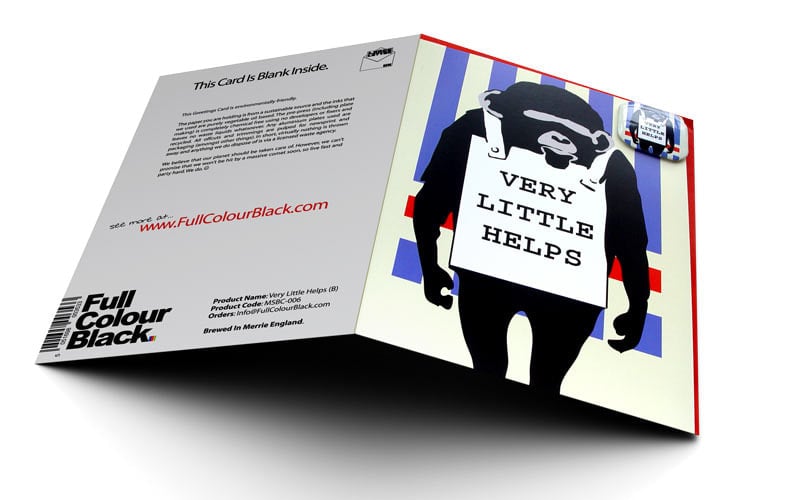
The European Union’s intellectual property office just reinforced last month’s invalidation of a trademark owned by the British street artist Banksy.
The latest rulings issued from the office’s “cancellation department” this morning relate to two of the anonymous artist’s most famous images, Radar Rat and Girl with an Umbrella. The judgment was made in favor of Full Colour Black, a U.K. greeting card company which recreates Banksy’s works for sale. The news was first reported by The Telegraph.
The E.U. panel had previously canceled the artist’s trademarks for his Laugh Now But One Day We’ll Be In Charge, an image depicting a monkey (or monkeys) wearing a sandwich-style advertising board. Cancellation of the trademark for a fourth Banksy image, depicting a girl hugging a torpedo, known as Bomb Hugger was issued just a few days ago.
Banksy can now no longer claim legal rights to his imagery, according to the report. Pest Control, the authentication vehicle that Banksy established in 2008, did not respond to a request for comment.
Selection of Laugh Now-themed cards from the “Monkey Signs” section of the Full Colour Black website.
“We are naturally delighted that the E.U. trademark office has confirmed our belief that Banksy acted in bad faith in registering those works as trademarks,” Aaron Wood, the attorney for Full Colour Black, told Artnet News in an email. “We had strong reason to believe that it was done to avoid having to bring cases under copyright law and to enable him to get registrations in the U.S. His case was undone by his public statements and those of his lawyer, Mark Stephens, who seemed to take delight in publicly professing how clever they were in opening the Croyden pop-up to subvert trade mark law.”
Stephens did not immediately respond to a request for comment.
The E.U. intellectual property office decided that Banksy’s anonymity means he cannot secure copyright for his art. Also working him against him is his previous public proclamation that “copyright is for losers.” On its website, Pest Control states: “Saying ‘Banksy wrote “copyright is for losers” in his book’ doesn’t give you free rein to misrepresent the artist and commit fraud. We checked.”
One of the Full Colour Black greeting-card company’s Banksy cards. Courtesy Full Colour Black.
The panel found that there was no evidence that Banksy was actually producing, selling, or providing any goods or services when he successfully applied for the E.U. trademark in 2018. As a result, they concluded that the artist is acting in “bad faith” as he is “only pretending to want to trade in his creations.”
In 2019, Banksy organized a shop in Croyden, Gross Domestic Product, that was not actually physically open but sold goods online. At the time, Banksy said that the impetus for the store was the trademark dispute with the greeting card company. Everything in the store was “created specifically to fulfill a particular trademark category under E.U. law”, Banksy said. “I had the legal sheet pinned up in the studio like a muse.”
“To protect the right under copyright law would require him to lose his anonymity, which would undermine his persona,” reads the ruling. “It is clear that when the proprietor filed [for the trademark] he did not intend to use [it] and actual use was only made… after the initiation of the previous proceedings.”